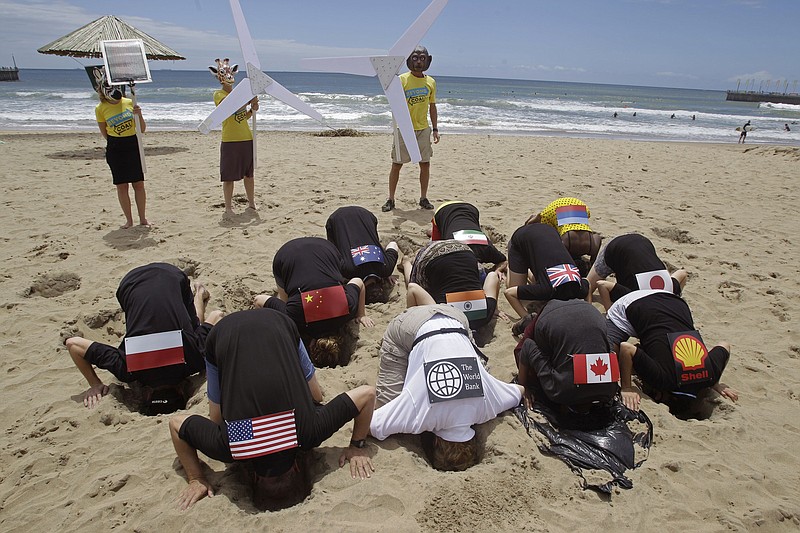Perhaps, at least for four years, we'll have some sanity - or at least rationality - on climate change.
Apparently, that's also the hope of folks who gathered this week for the 12th International Conference on Climate Change organized by The Heartland Institute, a Chicago-based nonprofit public policy research and educational organization,
Joseph Bast, president of The Heartland Institute, challenged the status quo of climate alarmists right off the bat with his opening remarks to the audience of 300 that included scientists, elected officials, medical doctors, economists and one astronaut.
"Most scientists don't believe climate change is mostly man-made and dangerous," he said. "Most of the public don't believe it, either. Now, we have a president [in Donald Trump] who doesn't believe it."
That's quite a difference from the commonly tossed about phrase of 97 percent of "climate scientists" believing in the theory of man-made global warming.
Indeed, commentator Bradley Gitz put that claim to the lie in this space earlier this week, noting the 97 percent figure was drawn from "questionable interpretation" of the results of a two-question 2009 survey by a University of Illinois graduate student and her adviser.
"The sample size used in the survey was tiny," he wrote, "the number of those who responded only a small minority of that tiny sample, and the number among the respondents who had actually done any kind of research on climate smaller still (thus a minority of a minority)."
Another conference speaker, climate scientist Willie Soon, has concluded research showing the human influence on climate is smaller and less predictable than claimed by government scientists who worked for the Obama administration.
"No one should be surprised," he said, "when history records that this conference and the 11 that preceded it played a major role in protecting open and objective science at a time when politics and the tactics of intimidation threatened to extinguish it."
Bast said he wanted to "plot a new course based on real scientific data and economic analysis" and not on the "alarmism and fake science that dominated policymaking during the Obama era."
We believe that's what most Americans want - not to deny what they've experienced, that we've had more warm days in the last 20 years than, say, in the previous 20 years, but to determine - minus the politics - if it's actually a part of temperature peaks and valleys over millennia. We also believe Americans want to plot a reasonable course of energy consumption, too - not, as Sen. Jim Inhofe told the conference, where "every administrative entity under Obama was forced to embrace climate change as a top priority," and where climate change was viewed as a "greater threat than terrorism."
The Obama administration, Inhofe said, spent $120 billion on climate change. Trump, he said, wants to return the role of federal agencies "to their statutory intent" instead of punishing the American people "with heavy handed regulations from Washington that give little or no actual environmental benefit."
That's rationality we can all appreciate.
